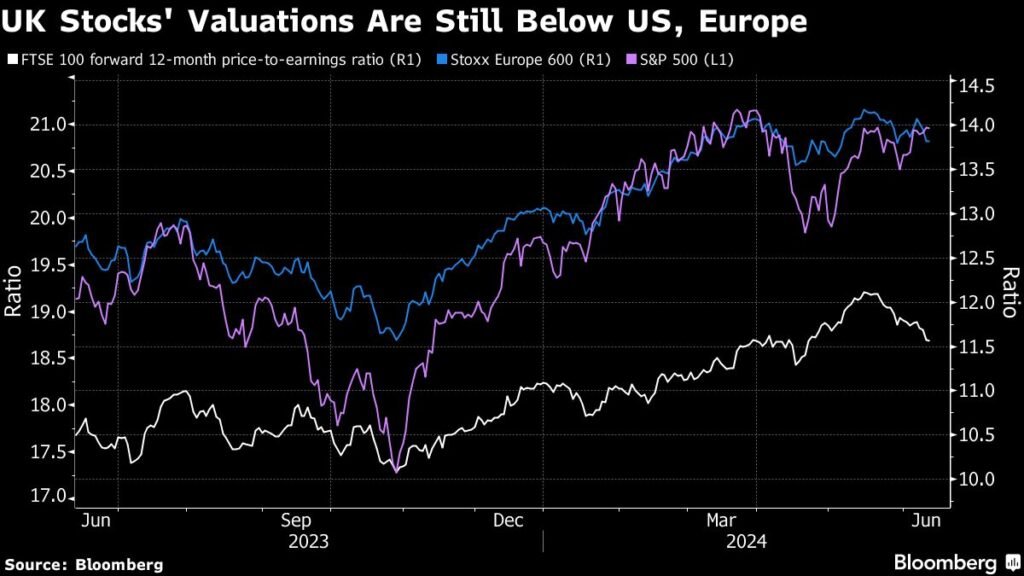(Bloomberg) — Political turmoil has cost France its spot as Europe’s biggest stock market, less than two years after it usurped it from Britain.
Most read articles on Bloomberg
President Emmanuel Macron’s surprise announcement of general elections triggered a sell-off last week that wiped about $258 billion from the market capitalization of French companies. Shares in Société Générale, BNP Paribas and Credit Agricole, all large holders of government bonds, each fell more than 10%.
The country’s stock market now totals about $3.13 trillion, just shy of Britain’s $3.18 trillion, according to data compiled by Bloomberg.The CAC 40 index has wiped out all of its gains in 2024, a sharp reversal from a record high hit a month ago.
“The next three to four weeks are uncertain and unfortunately could see further market volatility,” said Alberto Tocchio, portfolio manager at Kairos Partners in New York.
At the same time, a confluence of factors, including improving global growth and increased merger activity, have made UK stocks popular again with investors. The UK is facing a general election, but opinion polls show the opposition Labour Party has a large lead and the outcome is expected to be more stable.
“We like UK equities not only for valuation reasons but also from a portfolio diversification perspective given their attractive sector mix,” said Ulrich Urbahn, head of multi-asset strategy and research at Berenberg. “In addition, political uncertainty elsewhere seems to be higher, at least for now.”
The FTSE 100 index has hit record highs this year, buoyed by gains in export-dependent stocks such as Shell and Unilever, and has significantly outperformed the Euro Stoxx 50 in the past three months, with jet-engine maker Rolls-Royce Holdings Plc the biggest gainer.
Globally, the UK is currently the sixth largest stock market.
In France, fiscal and policy uncertainty has market strategists still unsure about a return to the stock market. Shares in banks and toll-road operators Vinci SA and Effage SA have fallen on concerns that motorways could be renationalized if Mr Macron’s party loses power.
The news comes at a time when France’s big luxury brands are already feeling pressured by China’s uneven recovery.
“Given the unusual political conundrum we’re currently facing, and the significant news risks in the run-up to the election, there’s no reason to rush to buy at the lows,” Emmanuel Kau, a strategist at Barclays, wrote in a strategy note on June 12. The two rounds of voting will take place on June 30 and July 7.
To be sure, investors also see some reason to remain cautious on Britain: The July 4 general election will be the biggest political upheaval since Brexit, and the new government will have limited fiscal space and face scrutiny from bond watchdogs.
The country’s stock market has also been shaken by pressure from activist investors seeking higher valuations as companies choose to list either in Europe or the United States.
–With assistance from Michael Msika and Farah Elbahrawy.
Most read articles on Bloomberg Businessweek
©2024 Bloomberg LP

